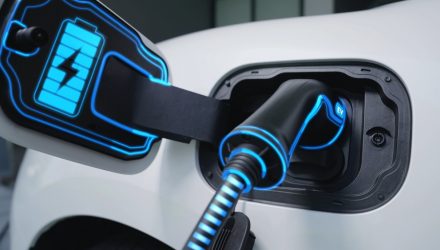It’s widely known that today, electric vehicles (EV) account for a small, but growing percentage of the global automobile market.
That growth trajectory underpins the investment thesis for a variety of assets, including the KraneShares Electric Vehicles and Future Mobility ETF (KARS). The ETF follows the Bloomberg Electric Vehicles Index. And it’s about much more than the original equipment manufacturers, confirming it’s a broad play on the EV ecosystem.
Still, when the rubber meets the road regarding EV investing, increased adoption is a focal point. Because that means more sales and, potentially, more profits for KARS member firms. Pivotal to driving broader EV adoption is price parity, boosting single-charge range, and more infrastructure. This includes charging stations to compel drivers to give up gas-powered vehicles.
Trends Favor KARS
EVs are considered to be a disruptive technology. As such, KARS investors ought to consider examining the ETF with long-term perspectives in mind, rather than hoping for a quick home run. Fortunately, forecasts appear to support the long-term outlook for KARS.
“By 2030, we forecast EVs will account for 40% of global auto sales — more than 5 times the number of EVs sold in 2022. This translates to roughly 40 million vehicles, with an additional 20 million hybrids,” noted Morningstar analyst Seth Goldstein.
Investors should also note global EV adoption hasn’t been linear to this point and likely won’t be going forward. On a regional level, Europe has been an EV leader. And China is the leading country in terms of EV adoption and sales. The U.S. has some work to do. But expected EV growth in the U.S. could be a significant long-term catalyst for KARS.
Other factors are emerging in favor of increased EV adoption in the U.S., potentially providing ballast to the KARS thesis – one that could accelerate when price parity is achieved.
“While EVs still cost more than most auto categories, we expect falling battery costs will drive cost parity over the next couple of years in the majority of autos,” added Goldstein. “Consumer function concerns are rapidly disappearing. As EVs have reached range parity with internal combustion engines, or ICEs, and charge times have fallen, the buildout of chargers across highways and in cities throughout the world will drive higher EV sales even without subsidies.”
Several KARS components, including lithium producer Albemarle (NYSE: ALB) and battery behemoth Samsung SDI, are among Morningstar’s preferred EV ideas. Those two stocks combine for almost 8% of the ETF’s roster.
For more news, information, and analysis, visit the Climate Insights Channel.

